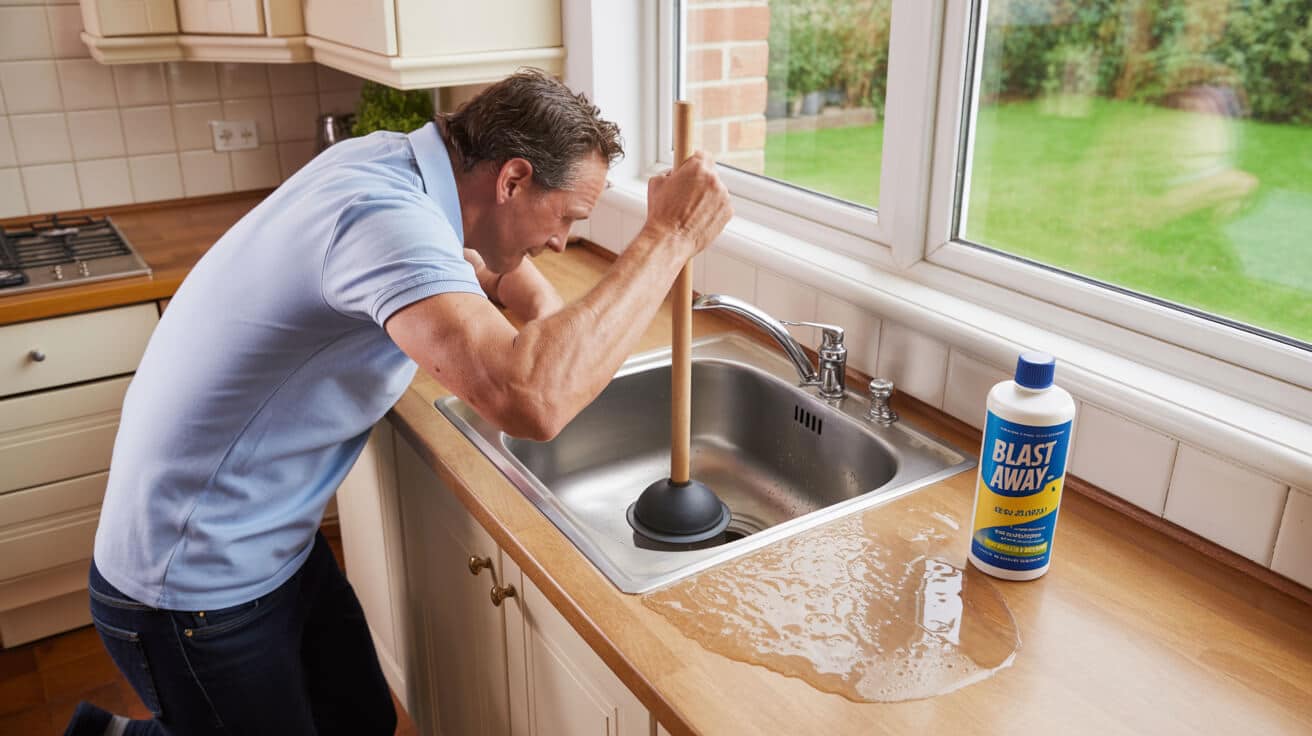 What Is a Gas Safety Certificate and Do I Need One
What Is a Gas Safety Certificate and Do I Need One
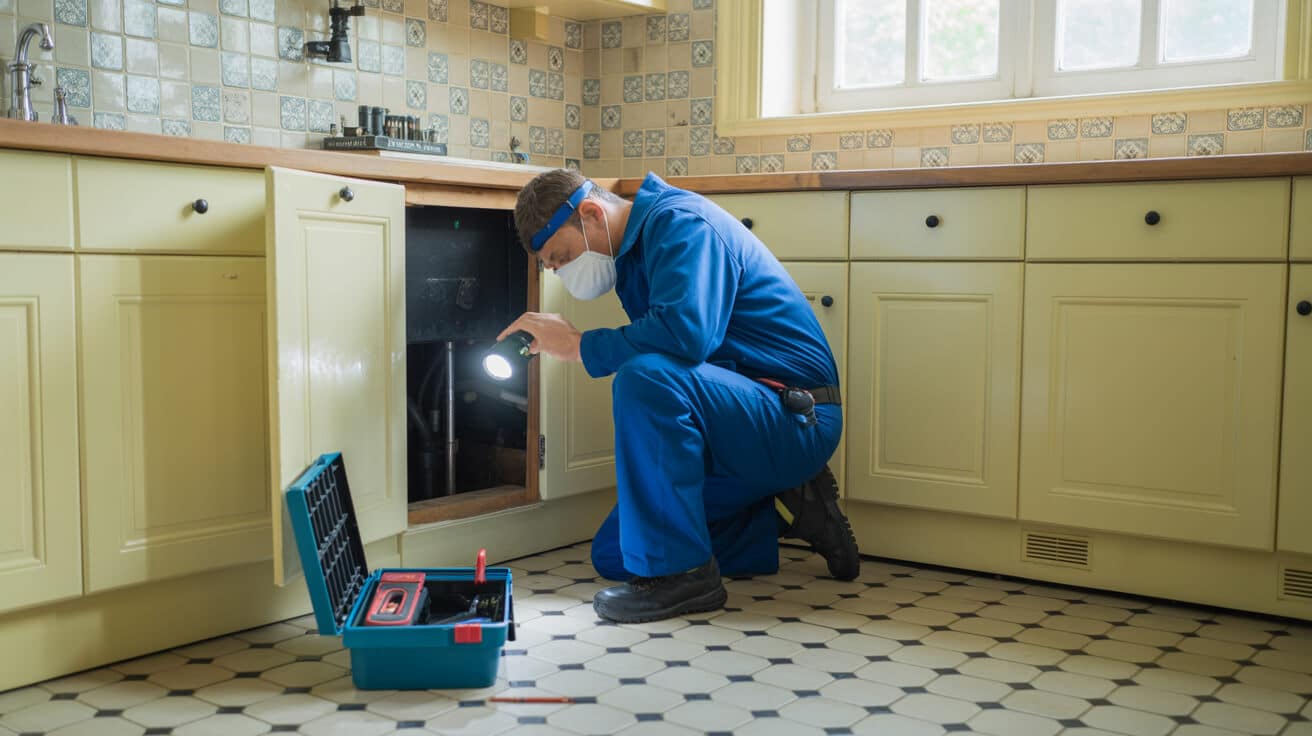
Why Is a Gas Safety Certificate More Than Just a Box-Ticking Exercise for Property Owners and Managers?
Think of a Gas Safety Certificate (CP12) as the proof you can show when anyone—from a tenant to a bank, insurer, or local council—wants to know your property is safe, legal, and fit to let or sell. This isn’t optional paperwork: it’s a statutory shield against fines, legal challenge, invalidated insurance, or—and this is real—being denied the right to rent or sell at all.
You can outsource admin, but you can’t delegate legal risk if your paperwork is out of date.
At a glance, the CP12 records that every gas appliance, flue, and pipework in your building has passed exacting tests by a Gas Safe registered engineer. Go deeper, and it’s legal evidence that you’ve done everything required by UK safety law (Gas Safety (Installation and Use) Regulations 1998). For landlords and letting or managing agents, the certificate is simply non-negotiable; it’s a criminal offence to operate without one, and there are no “grey areas.” For home owners, it’s the proof you’ll need if you sell or remortgage—and smart move to future-proof your legal position.
Why does this carry so much weight? If there’s ever an accident, gas leak, or even just a local authority spot-check, the CP12 speaks for itself. That’s why it’s requested during sales, refinancing, and letting, and why insurers can (and do) refuse claims if it’s missing or lapsed. With compliance demands rising—from council licencing to new tenant rights—this document is the linchpin of your property management playbook.
Who’s Legally Required to Hold a Gas Safety Certificate—and Where Are the Catch Points?
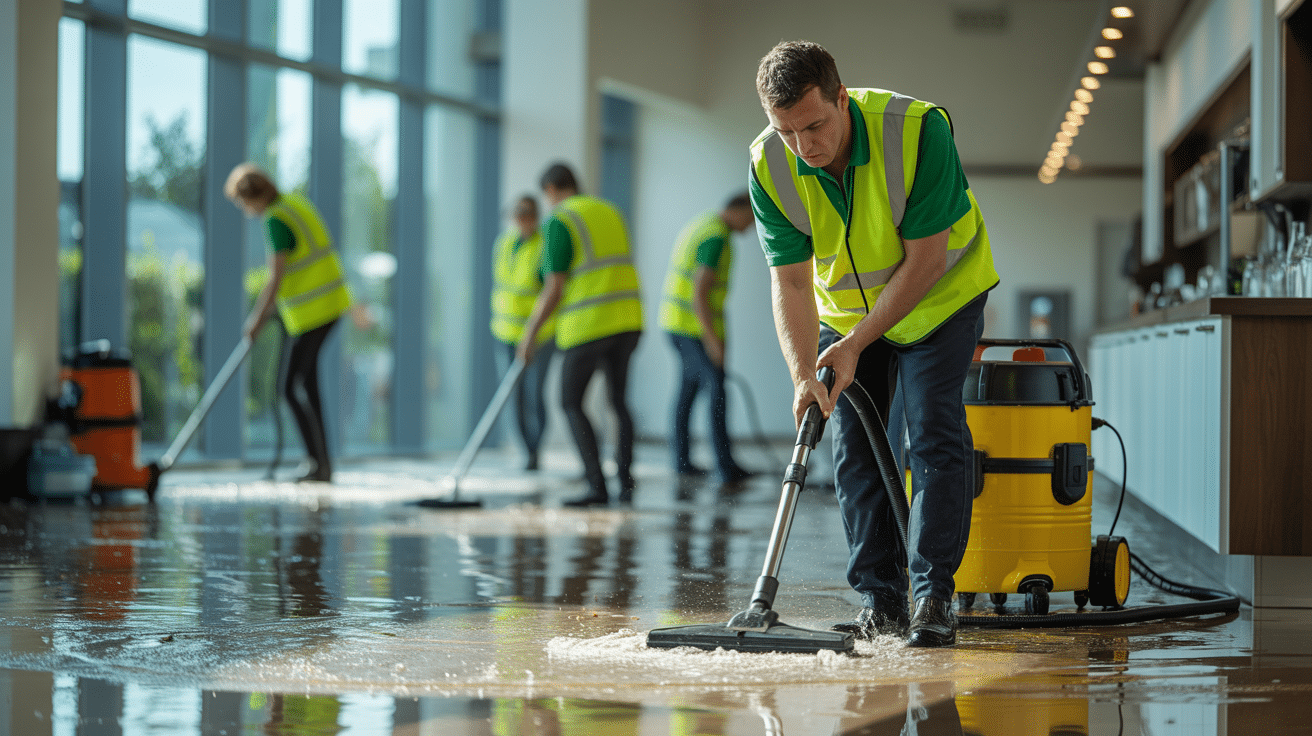
In the UK, if you rent out a property with any gas supply, you need a valid, in-date CP12 certificate, renewed every 12 months. This is not up for interpretation: the Gas Safety (Installation and Use) Regulations 1998 apply to every landlord, managing or letting agent, block manager, or property representative. No loopholes. No exemptions for holidays, gaps in tenancies, or DIY work bounced between contractors.
Know Where You Stand
- Landlord/Managing Agent: The law always places ultimate responsibility on the property owner, even if you use an agent or third party for bookings, repairs, or property management. The CP12 must reach tenants within 28 days of inspection. Missing it (or being unable to produce it) is a compliance breach—even if an agent ‘forgot’ or a contractor vanished.
- Homeowner: Typically, a certificate isn’t compulsory unless you’re selling, remortgaging, or have undergone major gas work—but it’s often needed for fast, frictionless transactions and keeps you ahead of insurance or legal proof.
- HMO and Special Cases: Houses in Multiple Occupation (including student lets, holiday homes, care settings, and shelters) must all have valid gas safety certification, no exceptions.
- Commercial & Business Premises: If there’s a gas appliance on site, you require certificate records for all workspaces—regardless of frequency, size, or whether equipment is actively used.
No CP12, no letting: councils and insurers are getting stricter, with no leeway for missed deadlines.
Getting clever about “delegating” responsibility never saves you: fail to provide a valid, up-to-date CP12, and the law comes for you—not your letting agent, not your tenant, not your brother-in-law who ‘helped out’. Even as a homeowner, you may need a fresh certificate for insurers after major gas repairs, or for a property transaction. Don’t assume your last engineer’s visit is a paper trail unless it resulted in a certificate.
What Actually Happens During a Gas Safety Inspection—and What Gets Checked That You Might Miss?
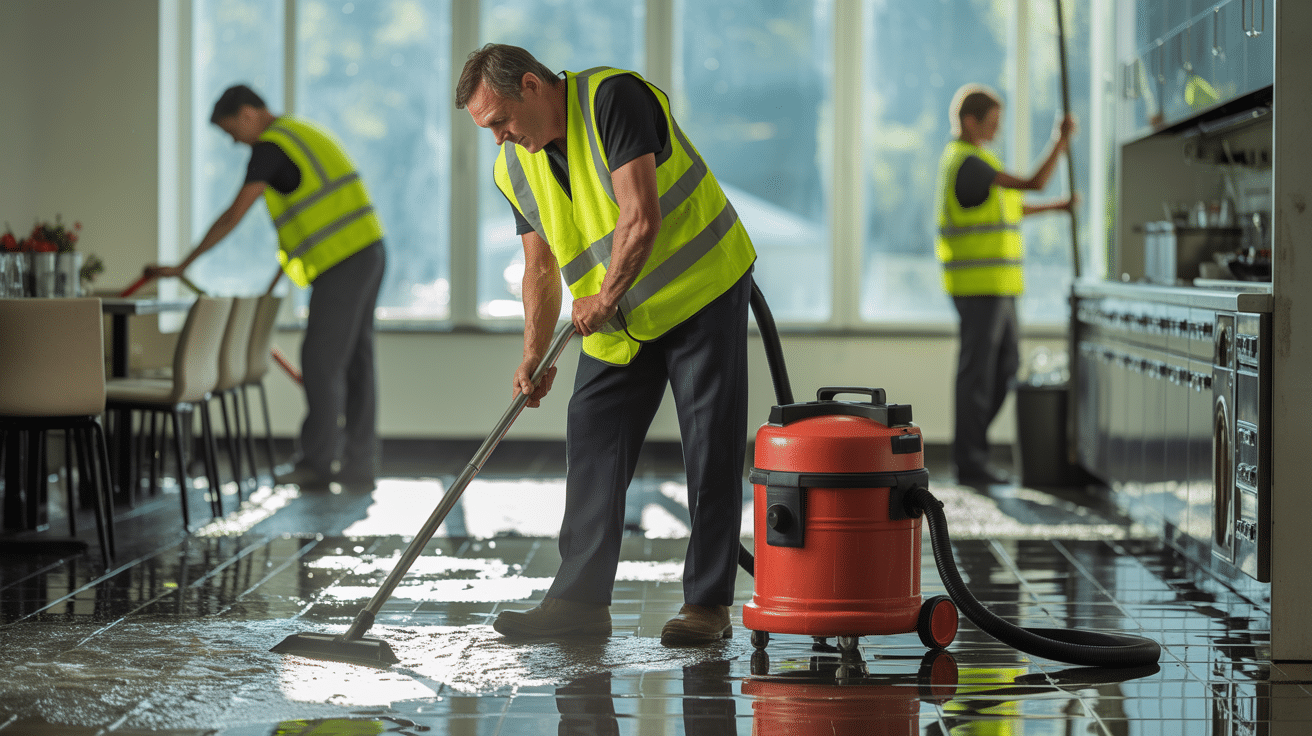
A legitimate Gas Safety inspection is not a quick ‘look-over’ or ten-minute sign-off. It’s a systematic, step-by-step check performed by a registered engineer, covering every risk pathway mandated by law.
Before the Inspection
- Engineer arrives and presents their Gas Safe ID (always, every time—don’t be shy about checking).
- Make sure every appliance (boiler, cooker, fire, gas metre, pipework, flue) is accessible—not boxed in by furniture or stored clutter.
The Inspection in Plain English
- Each appliance is thoroughly checked for flaws, damage, tampering, or incorrect settings.
- Pipework is carefully examined—look for leaks, corrosion, dodgy fittings, missing supports, and secure joins.
- A gas tightness test is run across the entire system, including joints you can’t see.
- Flues and chimneys are confirmed to be clear, correctly routed, and safely discharging. Ventilation? It’s tested everywhere, particularly in older properties and HMOs.
Safety Devices and Faults
- The engineer actively tests cut-outs, thermostats, interlocks—all the devices meant to prevent disaster.
- If anything’s unsafe, the unit is “capped off” (immediately disabled), tagged, and next steps are explained in simple terms.
After the Inspection—Certification and Your Legal Trail
- All findings—good, bad, and remedied—are logged in detail on the CP12 (digital or in-print).
- The certificate will list every checked appliance, note test results, the engineer’s registration ID, and pinpoint any faults discovered.
- Advanced firms (like Plumbers 4U) issue digital certificates for easy recall and seamless handover to agents, auditors, or new buyers.
A careful check highlights minor faults before they become major crises—and creates the legal paper trail you’ll need later on.
If your certificate isn’t crystal clear or fails to account for any gas installation, it cannot protect you in a claim.
What’s at Stake if You Miss Renewal or Skip a Gas Safety Check?

Letting property in the UK even a day outside of CP12 compliance jumps straight to criminal: potential fines up to £6,000 per property, per breach, plus possible prison sentences if injury or incident occurs (HSE; ARLA). Enforcement now is active: Section 21 evictions are invalid if your CP12 has slipped, and a missed certificate is a routine lender, agency, or insurance red flag.
The Hidden Dangers Get Worse
- Local authorities are increasingly able to spot-check and penalise, especially for HMO or portfolio owners.
- Tenants have full rights to demand and report missing paperwork, sparking investigations and compensation claims.
- Sales or remortgaging can grind to a halt—buyers and lenders will pull out if records are incomplete.
- Insurers can (and do) refuse post-incident payouts if you cannot produce an in-date, engineer-issued certificate, even if work was performed.
It’s not whether a problem will occur, but how prepared and protected you are when it does.
If your CP12 lapses—even for a few hours—the best move is immediate action: arrange same-day inspection, inform tenants, meticulously document everything. There’s no grace period. Compliance is pure binary: in-date or not.
How Do You Actually Manage Gas Safety Certificate Admin Without Getting Caught Out?
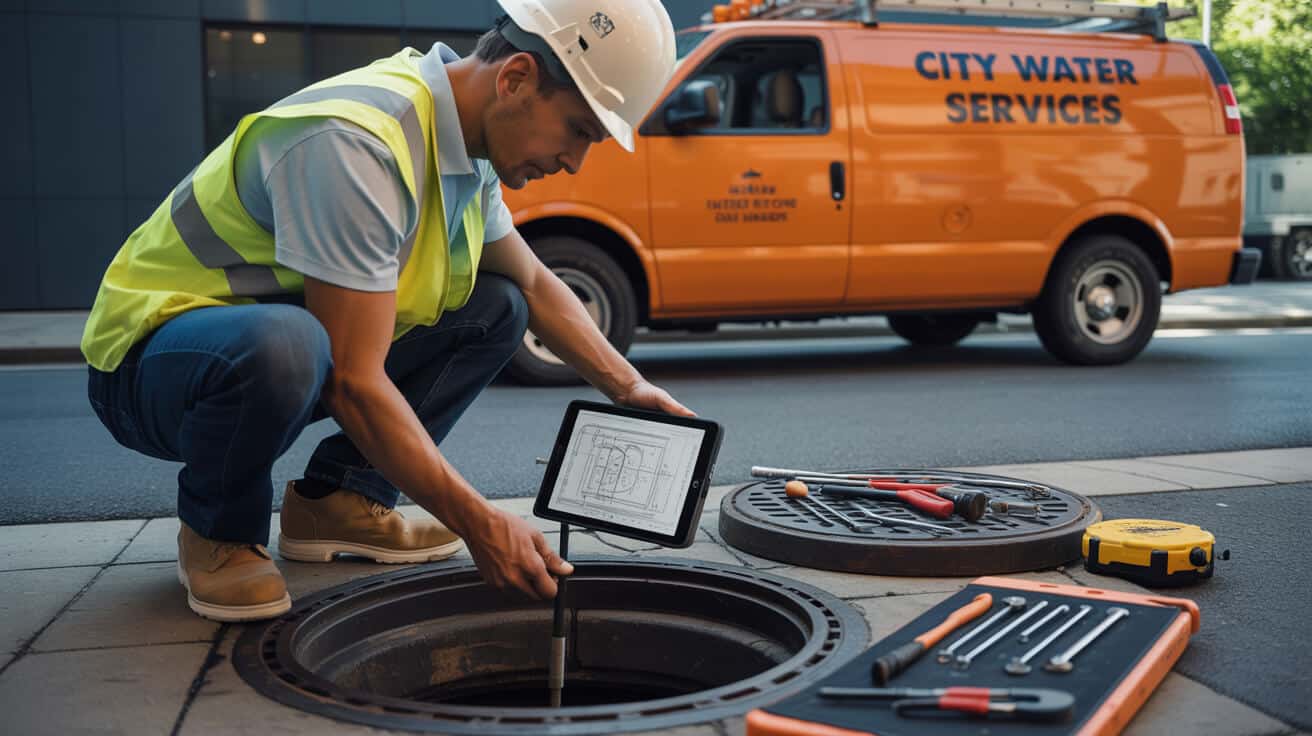
Juggling one certificate is simple, but managing a dozen (or a hundred) for landlords, letting agents, and management firms requires a bulletproof system. The biggest compliance risks aren’t bad intentions; they’re lost emails, expired docs, and missed reminders—especially at scale.
What a Robust System Looks Like
- Send certificates to tenants within 28 days of each completed inspection (paper, PDF, SMS, so long as it’s traceable).
- Back up every certificate for at least two years—though HMOs and portfolios may face longer audit windows.
- Use recurring digital reminders—a blend of property management software, cloud storage, and calendar sync—so expiry dates can’t sneak up on you.
- Build a relationship with a qualified, responsive engineer or firm such as Plumbers 4U—critical for rapid reissue of lost documents or evidence during agency changeovers.
- For agents: If managing properties for several owners, keep your record-keeping watertight; missing or incomplete documentation triggers fines against the owner as well as the agent.
A missing email, expired cert, or mislaid document can halt a property sale or force a compliance penalty.
Pro tip: Centralise all certificates in a secure digital dashboard, and double up your reminders—a calendar ping one month and one week before expiry. Lost a certificate? Your engineer can reissue as long as it’s a formally logged inspection. Authorities accept duplicates from registered professionals.
Who’s Qualified to Issue a CP12—And How Do You Know You’re Not Getting a Dodgy One?

There’s no shortcut: only a Gas Safe registered engineer, with explicit appliance permissions, can issue a legal Gas Safety Certificate. That’s your only valid shield in court, during a claim, or if challenged by a council or buyer.
The Non-Negotiables
- Always check the engineer’s Gas Safe photo ID, both before work starts and on receipt of the certificate. Their credentials must be valid for your specific appliance types—detailed on the back of the card.
- Use the [official Gas Safe Register lookup](https://www.gassaferegister.co.uk/) to verify an engineer in seconds. Many agents and managers have learned, painfully, that even one non-certificated job can jeopardise portfolios and block insurance.
- If your agent sends a contractor, the buck still stops with you (the owner or responsible manager) to confirm certification and proper documentation. Never assume “arranged by the agent” equals compliance.
- Failed checks must be treated seriously: a responsible engineer caps off, tags, and provides written next steps. Keep this documentation—it can save you during tenancy or insurance disputes.
Anyone offering to ‘sign off’ appliances without credentials—or who hands you a phone photo instead of an official certificate—is risking your insurance, your tenancy, and your reputation.
Don’t settle for vague emails or WhatsApp images; always keep your digital or physical certificate to hand.
What Must Every Good Gas Safety Certificate (CP12) Include to Keep You Fully Covered?
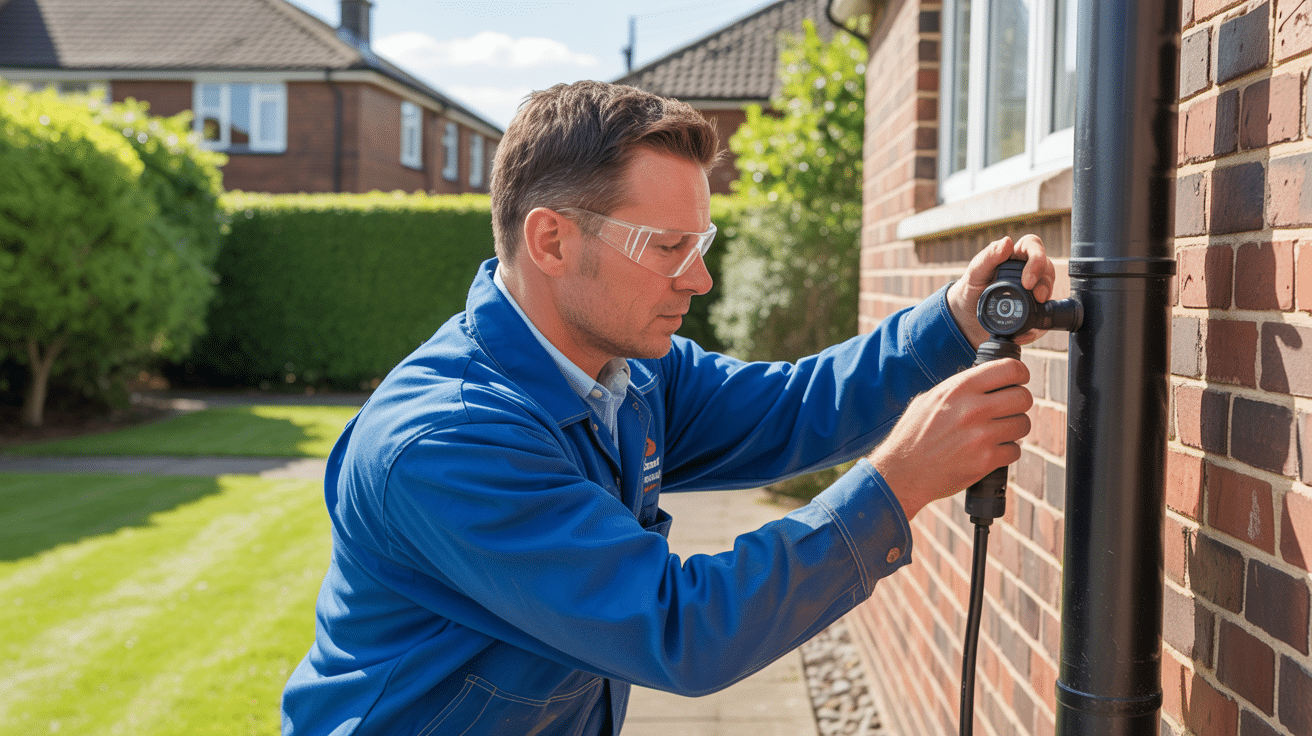
An effective CP12 is far more than a tick-box exercise. A properly completed certificate should:
- Itemise each appliance and flue inspected at the property, listing make/model and location
- Document the results of every safety test, including any faults, defects, or critical warnings
- Present full credentials of the inspecting engineer: name, Gas Safe ID, company info, inspection date
- Include next-step recommendations (if faults found); this helps you prioritise repairs and proves you acted on issues
- Have clear traceability—date, address, appliance serials—for audits, claims, renewals, or sales
The right paperwork can unblock a stalled sale, defend against a claim, and protect your ability to evict, sell or refinance.
Landlords or managers with portfolios will value instant digital recall, especially when auditors or agents want proof in a hurry. Firms like Plumbers 4U go further: lost certificate? Get a secure PDF reissue. Due diligence never looked so painless.
Never accept a mere verbal or text confirmation, or a “we checked, it’s fine” note. If an appliance fails, demand a clear explanation, written recommendations, and documentation as insurance.
How Plumbers 4U Makes Gas Safety Compliance Effortless—So You Never Worry About a Missed Renewal or Botched Audit
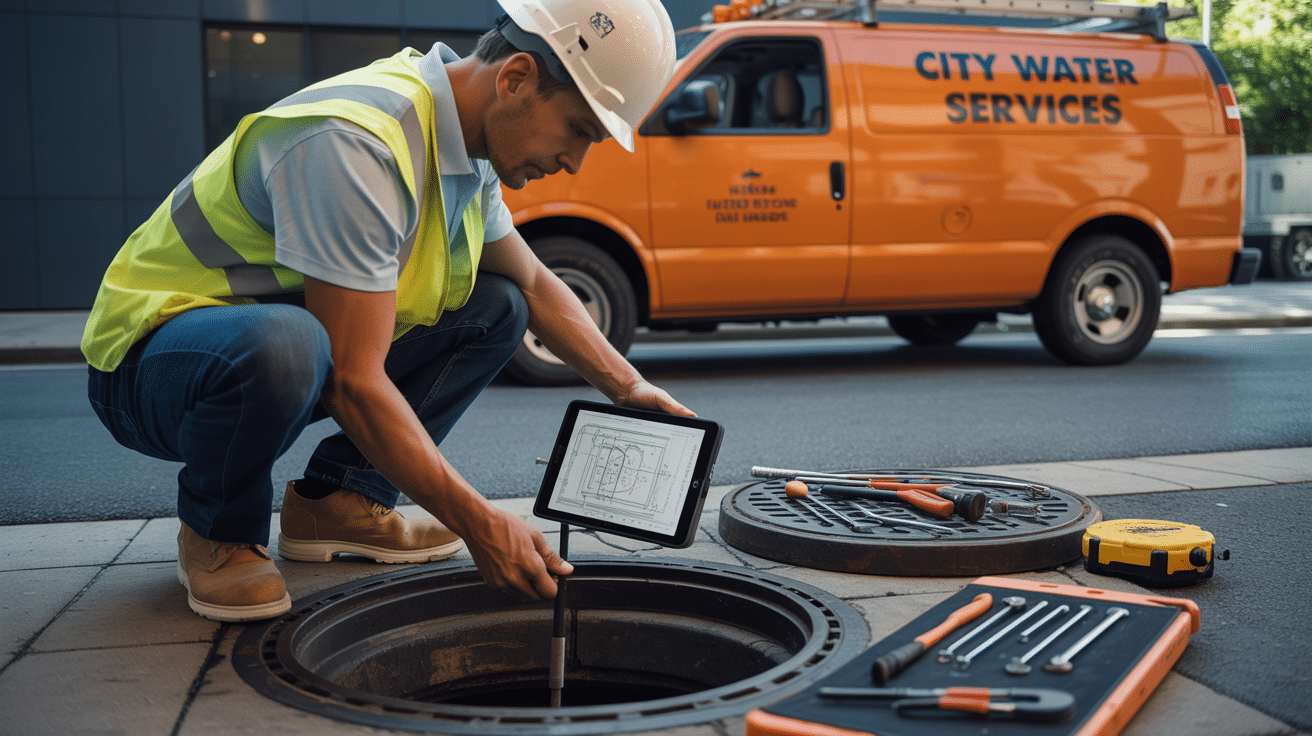
For most property owners and managers, compliance headaches come from admin—expire dates missed, agent handoffs bungled, certificates lost in inboxes—not from the work itself. Plumbers 4U have built an engineered system that solves this:
- Gas Safe and WRAS-approved engineers only: No corners cut, ever.
- Digital certificate delivery: Instant, secure, and retrievable for any audit or handover—ideal for landlords, agents, portfolio managers juggling multiple sites.
- Built-in renewal reminders: Our system flags renewals and sends prompts well before you’re ever exposed.
- Centralised, portfolio-ready archives: Seamless handover, audit, or even office staff change, with all documentation under one login.
- Stepwise, transparent process: Every client gets a simple breakdown of what’s checked, clear defect logging, and plain-language repair options.
With our experts, your property’s safety is never in question—and neither is your compliance.
We make sure every inspection is performed as if your compliance and reputation are our own—because for us, they are. Every process is fully UK-compliant and patent-tracked, with digital chains of custody for all paperwork.
Get Ahead of Risk—Book Your Gas Safety Certificate Today
Letting admin or expired documents open you up to avoidable penalties isn’t just a pain, it’s an unnecessary gamble—one that can halt sales, evictions, or even void an insurance claim outright. With Plumbers 4U, you get:
- Gas Safe and WRAS-accredited engineers for full compliance, every time
- Instantly archived digital certificates ready for agency handover, audit, or regulatory check
- Smart admin support for reminders, renewals, reissues
- Transparent defect reports and plain-English repair advice
- HMO, block, and portfolio support tailored for your property scale
- Clear communication from first phone call to after-care handover
Compliance stands between you and unnecessary loss—don’t let a paperwork slip or forgetful handover cost you thousands.
Book your Gas Safety Certificate with Plumbers 4U now. Keep your property, business, and income secure, with the professional process your reputation deserves.
Frequently Asked Questions
What new compliance threats and digital pitfalls are emerging for Gas Safety Certificates in 2025 and beyond?
Rapid digitalisation, stricter enforcement, and interconnected legal standards have raised the stakes for Gas Safety Certificates—transforming what used to be a once-a-year admin into a frontline defence for property owners, landlords, and managers. In 2025, the threat landscape isn’t limited to missed renewals; regulatory bodies now cross-reference gas certificates with insurance, licencing, and energy efficiency records, while more councils implement real-time spot checks using digital audit trails. A simple paperwork oversight can now trigger a cascade: blocked property sales, frozen insurance claims, or even being flagged on public registers.
The margin for error has closed—regulators expect your compliance proof to be instant, digital, and watertight.
How are authorities and insurers tightening compliance checks?
- New council policies require digital certificates to be retrievable within hours—not days—during spot checks or tenant complaints.
- Major insurers and underwriters increasingly insist that certificate records are cross-matched with EPCs, fire safety logs, and CO alarm registers.
- Letting platforms and managing agent software now auto-flag lapses, triggering warning notices or removing listings until compliance is restored.
Failing to adapt puts your asset and reputation in jeopardy. A missed handover or an out-of-date digital file can stall a remortgage or hand tenants new rights to withhold rent. Protect every certificate like it’s your licence to operate—because in 2025, that’s what it is.
What can you do today to stay ahead?
- Migrate to providers who offer secure, multi-format handover (PDF/email/app dashboard) and automatic multi-stakeholder alerts.
- Schedule compliance reviews to update every admin process that touches gas safety—hiring, onboarding, portfolio renewal, and staff turnover protocols all matter.
- Audit your own records quarterly—don’t wait for a council letter to highlight a missing file.
Book a full compliance health-check with Plumbers 4U to bulletproof your admin before audit season arrives.
How does a digital-first approach reduce your risk of missed renewals or failed audits?
Switching to digital-first gas safety management isn’t just tech for tech’s sake—it’s a real safety net against oversights that cost property owners and managers dearly. Every link in your compliance chain, from inspection to certificate handoff, is now an audit target. A digital backbone delivers instant retrieval, automatic reminders, and visible handover—qualities that both councils and insurers demand.
The fastest-growing cause of lost rent is certificate admin failure, not faulty appliances.
What are the tangible advantages of digital gas safety management?
- Every certificate is time-stamped, archivable, and instantly deliverable to owners, tenants, and agents—even in the event of device or staff change.
- Automated reminders ensure no expiry date is overlooked, and batch management dashboards let agents or portfolio landlords see the status of every property in real time.
- Document sharing logs provide an audit trail from inspection to tenant handover, satisfying even the strictest letting board or lender.
How can Plumbers 4U strengthen your compliance routine?
- Certificates from Plumbers 4U are delivered via secure portals, with backups available for any stakeholder, on demand.
- Portfolio clients gain dashboard tools for batch renewals, notification management, and compliance integration with EPC or other safety certifications.
- Your data stays GDPR-compliant, with granular controls for agent, landlord, and even legal/reinsurance third parties.
Future-proof your property business: move your compliance to the cloud with a trusted, audit-ready partner at the helm.
What role do updated engineer accreditations and ongoing training play in safeguarding compliance for property owners?
Modern gas safety isn’t just about a valid badge—it’s about ongoing competence, up-to-date techniques, and traceable credential renewal. Authorities and insurers in 2025 scrutinise not just the certificate but who issued it, when they last refreshed their training, and whether their remit matches your appliance or property type. For property owners and agents, trusting unverified or out-of-date engineers is a false economy that can unravel your entire legal protection.
A certificate is only as strong as the credentials standing behind it. One lapsed badge, and you’re back to square one.
What has changed with engineer credentials since 2024?
- Engineers must requalify annually for new boiler types, regulatory updates (Part G, G3), and manufacturer-issued technical changes.
- Gas Safe ID numbers are now auto-checked against national registers by many councils and lender audit systems.
- Certificates sometimes list specific codes for every device—if an engineer isn’t credentialed for, say, commercial catering, your whole inspection may be void.
Actionable steps to verify ongoing competence
- Always check your engineer’s Gas Safe ID on job day, not just at booking—every renewal matters.
- Request proof of any specialist accreditations, especially for unvented cylinders (G3) or commercial/multi-unit blocks.
- Store a record of your engineer’s renewal and check dates with your compliance logs.
Demand transparent engineer credentials as part of every compliance job—and work with providers like Plumbers 4U who audit their teams as rigorously as you do.
How do regulations in 2025 protect tenants and asset value beyond ‘tick box’ gas checks?
The legal and financial environment now uses gas safety as a lever for tenant welfare, asset integrity, and even business longevity. Councils are empowered to enforce corrective actions that go way beyond paperwork—think forced remedial works, repair stipulations on buyers, and rental freezes during disputes. Tenants are also savvier, leveraging compliance gaps for negotiation or legal action, making robust routines vital to both short and long-term property performance.
In 2025, keeping tenants safe is the minimum. Protecting your investment means mastering the paperwork and the process, every cycle.
Where are new tenant and asset protections showing up?
- Section 21 (no-fault) evictions are now routinely frozen for even 24-hour certificate lapses, regardless of intent.
- Buyers and remortgaging lenders request not just a fresh certificate, but evidence of at least 12–24 months of unbroken compliance.
- Leasehold and commercial contracts increasingly reference gas safety status as a factor in release of funds, rent, and legal occupancy.
Strengthen your future by treating compliance as continuous
- Set monthly reminders to review your digital compliance log for gaps, overlaps, or missed entries.
- Educate your tenants and agents to expect and demand instant proof-on-request—empowered occupants are your first line of defence against enforcement.
- Regularly cross-check with external records (council, Gas Safe Register) to confirm your assets are logged as up-to-date.
Turn legal compliance into a trust asset: reframe each routine gas inspection as an investment in portfolio value and tenant peace of mind.
Why can “one-size-fits-all” certificate routines fail multi-property landlords and commercial managers?
Portfolio landlords, agents, and commercial premises managers operate under a web of complex, overlapping rules. A process that works for single-home owners often unravels amid portfolio-level volume, cross-jurisdiction requirements, and multi-party communication. Recent cases have seen managing agents face compliance meltdowns during sales, major repairs, or tenancy switches because their routines assumed a single renewal date or format was sufficient.
Scaling up property means scaling up compliance—manual systems crack under pressure.
What risks tail portfolios and commercial lets?
- Misaligned renewal dates across sites expose you to rolling periods of invisible non-compliance.
- Lack of a centralised digital dashboard leads to missed reminders, document loss during staffing changes, or slow retrieval under audit.
- Differences in council policies or insurer requirements for commercial kitchens, student blocks, or care homes demand ultra-precise record-keeping.
How can Plumbers 4U resolve these portfolio pain points?
- Custom-built management dashboards for portfolio clients allow at-a-glance status checks, renewal scheduling, and batch certificate downloads across every unit.
- Integration with landlord insurance, agency lending platforms, and building management systems ensures compliance data always matches contract milestones.
- Dedicated account management keeps reminders, document handovers, and compliance reporting synchronised across all stakeholders.
Remove scaling friction from your gas safety process—centralise, digitise, and partner with experts who understand the complexity of commercial risk.
What smart admin and evidence-based routines deliver regulatory peace of mind for any property holder?
Smart compliance today isn’t just about passing a check—it’s about implementing seamless workflows that preempt failure and withstand third-party scrutiny. That means proactive scheduling, overlapping regulatory checks (like EPC, CO alarm, and legionella), and documented communication among all parties involved. With regulatory evolution only accelerating in the UK, routines must be robust, flexible, and digitally managed to truly protect both people and property.
You don’t win at compliance by doing the minimum anymore—you win by being unreasonably prepared.
What proven routines shield you from future risk?
- Always schedule multiple regulatory inspections back-to-back (gas, EPC, fire safety) to reduce admin fatigue and documentation loss.
- Use provider platforms that document every step with digital audit logs, timestamps, and user-certifiable history.
- Maintain offsite or third-party verified backup copies—future regulations may require cloud-stored evidence for every transaction.
The Plumbers 4U advantage
- Full-spectrum approach to compliance, bundling gas safety with other required property checks at intervals optimised for business and legal deadlines.
- Every routine and certificate is built for instant audit pass—legible, indexed, multi-format, and up to date with the year’s changes.
- End-of-cycle compliance reviews pre-empt changes in property use, tenant population, or new appliance additions, cutting surprise failures to near zero.
Protect your income, reputation, and asset value year after year—with a compliance partner who builds future-ready routines from day one.



